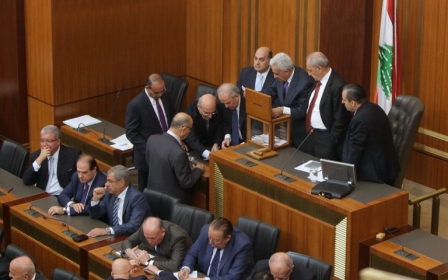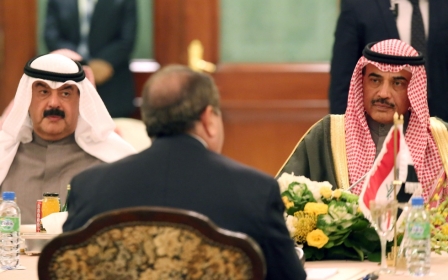Leaked security documents show IS plots to attack Lebanon

Islamic State (IS) militants are intending to expand their field of operation to Lebanon where they’re planning a string of attacks, Lebanese media reported on Sunday.
The reports are based on a cachet of security documents leaked to Ad-Diyar newspaper and apparently showing intelligence that IS is plotting to attack Shiite and Christian villages in the northern Bekaa Valley, near the Syria border.
The documents are signed by internal security forces chief Ibrahim Basbous and are dated 8 April. They pinpoint six IS members - five Saudis and one Iraqi - as the lynchpins of the operation and claim that they have been trying to set up a base in the Ain al-Hilweh Palestinian refugee camp in southern Lebanon and that they were believed to be using forged Palestinian documents.
Palestinain sources in Ain al-Hilweh camp have told the local Daily Star newspaper that they have received confirmation that a long-stalled elite security force would deploy inside the camp on 8 July. The issue is extremely sensitive in Lebanon where the Palestinian camps are traditionally self-policing.
The first official military intervention in a refugee camp in 2007, ended in the near total destruction of the northern Nahr al-Bared camp near Tripoli and the displacement of tens of thousands of refugee families, most of whom have still not been able to return. It is believed that local Palestinian armed groups might try to impede the elite forces’ movement.
However, Lebanon has seen a spike in suicide and other attacks in the last two years as the spill over from neighbouring Syria has threatened to engulf the country, prompting the country’s security services and armed forces to step up their presence nationwide.
IS has managed to seize vast swaths of Syria since the uprising against Syrian President Bashar al-Assad first started more than three and a half years ago. The group, led by shadowy figure Abu Bakr al-Baghdadi, has also since made large gains in Iraq, and spearheaded a broader-based Sunni revolt against the government of Nouri al-Maliki, who has been widely accused of promoting sectarian politics that fuelled resentment among the country’s Sunni minority.
Since IS’ surge in Iraq and Syria, discussion has turned to what country might be next, with the whole region scrambling to beef up security and prevent further blowback.
Lebanon, which is home to more than one million Syrian refugees and has a very ethnically mixed population, has so far borne the brunt of the Syria spill over. The country experienced a wave of bloody attacks last year, and in recent weeks has seen a suicide attack rock the main highway linking Damascus and Beirut, and a separate car bomb explode in a busy, mainly Shiite suburb.
On 26 June there was a further attack, with a suicide bomber blowing himself up in a four-star Beirut hotel after security services tried to storm his room.
According to local media IS has since taken responsibility for all the attacks, although a plethora of other militant groups are also known to operate in the country.
Last week a separate militant group the Free Sunni Brigades in Baalbek, issued threats on social media saying that it would start targeting the Lebanese Shia group Hezbollah if it did not immediately withdraw from Syria where it has been fighting alongside embattles President Bashar al-Assad.
It also said that it had formed elite fighting force of suicide bombers that would soon target Lebanon’s Christian minority that makes up roughly a third of the total population. The security forces, however, have dismissed both these threats as not credible.
New MEE newsletter: Jerusalem Dispatch
Sign up to get the latest insights and analysis on Israel-Palestine, alongside Turkey Unpacked and other MEE newsletters
Middle East Eye delivers independent and unrivalled coverage and analysis of the Middle East, North Africa and beyond. To learn more about republishing this content and the associated fees, please fill out this form. More about MEE can be found here.




